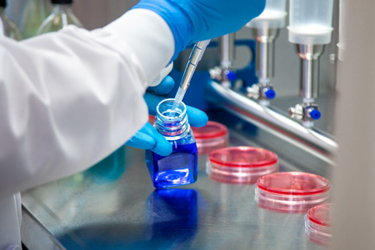Strengthen Your IND Submission To The FDA By Conducting Microbial Challenge Studies
By Ken Chomistek, Singota Solutions

Microbial challenge studies are becoming increasingly common as drug products (DP) are being manufactured with different types of active pharmaceutical ingredients (API) than fifteen years ago. Peptides, proteins, monoclonal antibodies, oligonucleotides, and biosimilars are more common; manufacturing no longer places an emphasis on small molecules. These new APIs possess different handling and storage challenges due to their physical and chemical sensitivities. Also, regulatory bodies have begun to focus more keenly on how drug developers prove that products with a post-manufacturing handling step, prior to patient administration, have been fully vetted to ensure patient safety.
In September 2020, the CASSS Midwest Regional Virtual Forum: Clinical‐in‐use Stability Studies produced a guidance document outlining what the FDA currently seeks from microbial challenge studies. Per the guidance, “many biological product solutions, after reconstitution or dilution, are growth promoting.” A microbial challenge study should be initiated when: “a drug product is liable to contamination with adventitious agents when a container closure system is breached during reconstitution and/or dilution,” and/or when “storage conditions may allow for microbial proliferation prior to patient administration.”
When seeking a microbial challenge study partner, three questions are key to determining that partner’s capability: Does the partner have a dedicated microbiology team? Does that team execute microbial challenge studies? If so, does my DP fit a format they are comfortable handling for such a study?
Get unlimited access to:
Enter your credentials below to log in. Not yet a member of Outsourced Pharma? Subscribe today.
